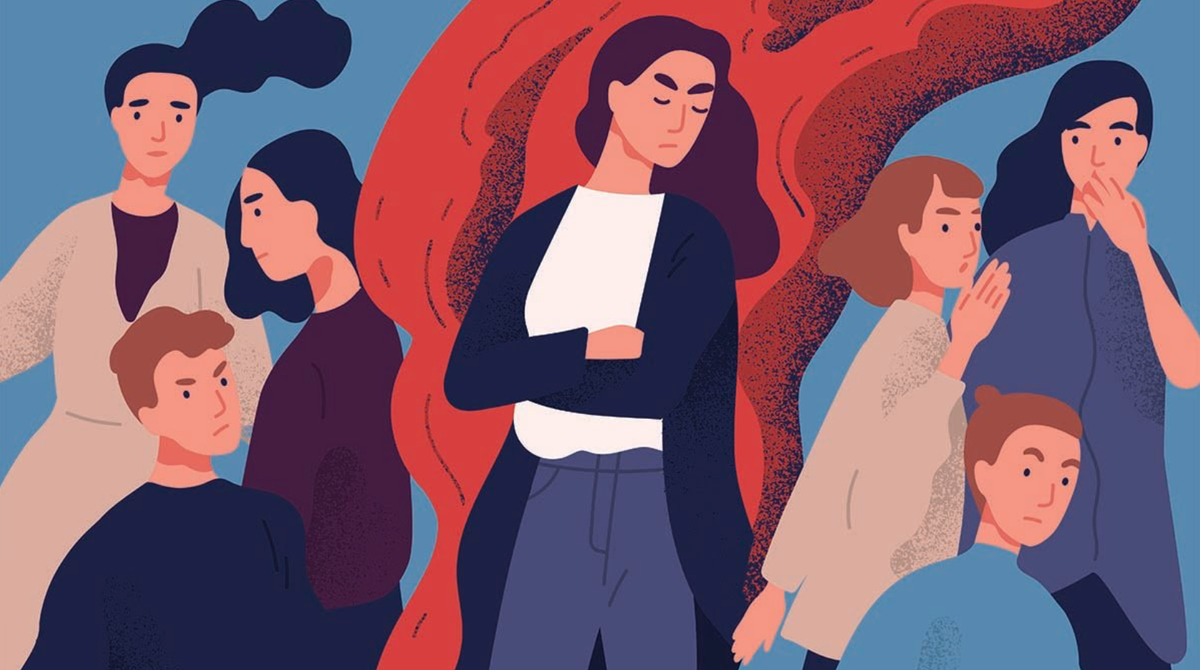Why we need to be angrier

Really? The world already seems like a pretty angry place, why does it need more people already? Bear with me.
Before we start, it's important to separate violence, hostility and aggression from anger. Those first three things are not what we're talking about. Anger is an emotion, the other three, an act.
The silent majority 😶
When you switch on the TV, or watch the world on your smartphone, there seems to be an abundance of people being angry. Whether that's people (rightly) being angry about race discrimination, climate change, the handling of the pandemic, or other people's inability to abide by the rules of the pandemic, there's anger on the streets. But there needs to be more, argues the School of Life in its latest video.
'Whatever the impression generated by a publically vocal angry cohort, the far more common yet (by nature) invisible problem is a contrary tendency, a widespread inability to get angry, a failure to know how rightly and effectively to mount a complaint, an inarticulate swallowing of frustration – and the bitterness, subterranean ‘acting out’ and low-level depression that follow from not allowing any of our rightful sorrows to find expression. For every one person who shouts too loudly, there are at least twenty who have unfairly lost their voice."
Good anger 😠
Why is anger good sometimes? Without feelings of anger, we wouldn’t take a stand against unfairness or injustice. Anger is an internal alarm that tells us something is not quite right.
It's when the food arrives in a restaurant and it's uncooked. It's the taxi that doesn't drop you off where you asked. It's the feeling we get when other people are being unfairly treated, or our environment is being destroyed. It's not right, but it's right for you to feel that. It's also a simple way of expressing more complicated feelings.
What hides beneath 😠
What many people don’t realize is that anger is a secondary emotion, argues Kim Pratt in Healthy Psych. What does this mean? Primary emotions, like fear or sadness, can be found underneath the anger. Fear is another one. It can be a way to express things like anxiety and worry. Sadness is a proxy for the experience of loss, disappointment, or discouragement.
However, feeling fear and sadness is uncomfortable. It makes you feel vulnerable and not in control. So avoid it, or look to feel the opposite. One way we can do that is by getting angry. Anger can provide a surge of energy and make you feel more in charge, rather than feeling vulnerable or helpless. Essentially, anger can be a means of creating a sense of control and power in the face of vulnerability and uncertainty.
Brene Brown, author of Daring Greatly - a book that is always top of my recommended reading list - has spent years documenting the lives of people to try and understand the human condition. Her conclusion about anger?
"Anger can mask a far more difficult emotion like grief, regret, or shame, and we need to use it to dig into what we’re really feeling. Either way, anger is a powerful catalyst."
It's a really valuable exercise. When you're feeling angry, try to sit with it and see what lies behind it. Are you frustrated, feeling misunderstood, or lashing out because you feel embarrassed?
Once you've grasped that, go out and tell someone. If you think the world should change, be the change. Find your voice. Find your anger.
Ok, where can I learn more? 📚
- Daring Greatly: How the courage to be vulnerable transforms the way we live, love, parent and lead - one of my favourite books. You won't regret reading this.
- How to be angry in a relationship - this is could be for any relationship.
- The School of Life's Video on the subject.





